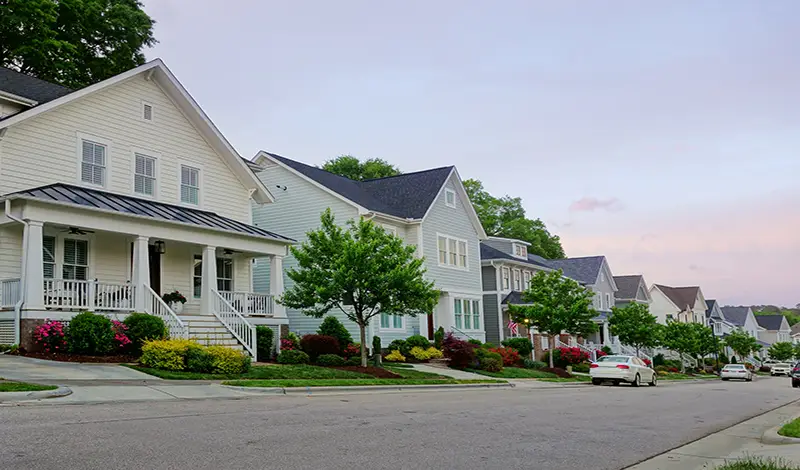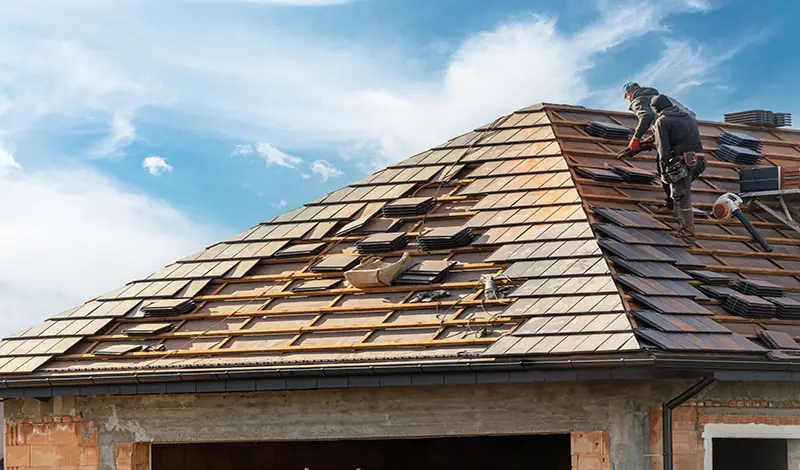What Affects Home Insurance Rates?
Published on February 22, 2024 | 5 Minute read

Melanie
Ortiz Reyes
Content Specialist
Homeownership brings a sense of security and comfort, but it also comes with the responsibility of safeguarding your investment. One crucial aspect of protecting your home is securing the right insurance coverage. However, the cost of home insurance can vary significantly from one homeowner to another. To demystify the intricacies of home insurance rates, let's delve into the factors that influence these costs, offering insights into how homeowners can navigate this aspect of financial planning.

1. Location Matters
The geographic location of your home plays a pivotal role in determining insurance rates. Properties in regions prone to natural disasters such as hurricanes, earthquakes, floods, or wildfires typically incur higher premiums. Insurance providers assess the risk associated with specific locations and adjust rates accordingly. Proximity to a fire station, the coastline, or flood zones can significantly impact the cost of coverage.
2. Construction and Age of the Home

3. Your Home's Replacement Cost
The replacement cost of your home, which is the amount required to rebuild it in the event of a total loss, is a key factor in determining insurance rates. Factors such as the size of the home, construction quality, and the cost of materials and labor in your area contribute to this assessment. While it may be tempting to lower coverage to reduce premiums, it's crucial to ensure that your policy adequately covers the full replacement cost to avoid financial setbacks in the event of a disaster.
4. Deductible Choices
The deductible is the amount you agree to pay out of pocket before your insurance coverage kicks in. Choosing a higher deductible typically results in lower premiums, as you are assuming a greater portion of the financial risk. However, it's essential to strike a balance between a deductible that aligns with your budget and one that doesn't leave you financially strained in the event of a claim.

5. Home Security Measures
Investing in home security features can have a positive impact on insurance rates. Installing burglar alarms, smoke detectors, deadbolt locks, and even a comprehensive home security system can lower the risk of theft, fire, or vandalism. Many insurance providers offer discounts to homeowners who take proactive measures to enhance the security of their properties.
6. Claim History
Your past claims history is a significant factor that insurance providers consider when determining your rates. Homes with a history of frequent claims or high-dollar claims may face increased premiums. While it's not always possible to avoid filing a claim, being mindful of your claims history and considering the potential impact on future rates can help you make informed decisions about when to involve your insurance company.

7. Personal Credit Score
Surprisingly, your credit score can influence your home insurance rates. Insurers often use credit-based insurance scores to assess the risk of policyholders. Maintaining a good credit score demonstrates financial responsibility and can contribute to lower insurance premiums. Regularly monitoring and improving your credit can positively impact your overall financial health, including insurance costs.
8. Coverage Limits and Policy Options
The extent of coverage and the specific policy options you choose will naturally affect your insurance rates. Opting for additional coverage, such as extended replacement cost coverage or coverage for valuable items like jewelry or art, will increase premiums. Conversely, choosing a basic policy with lower coverage limits may result in lower premiums but could leave you exposed to significant financial risks in the event of a claim.

9. Pet Ownership
Believe it or not, the type and number of pets you have can influence your home insurance rates. Certain breeds of dogs, considered more prone to aggressive behavior, may lead to higher premiums. Some insurers may even deny coverage based on the breed of your dog. If you have pets, it's essential to disclose this information to your insurance provider to ensure accurate coverage and avoid potential issues in the future.
10. Insurance Company and Discounts
The insurance company you choose can impact your rates, as different providers have varying risk assessment models and pricing strategies. Shopping around and comparing quotes from multiple insurers can help you find the most competitive rates. Additionally, inquire about available discounts. Many insurance companies offer discounts for bundling home and auto insurance, having a claims-free history, being a loyal customer, or making safety upgrades to your home.
Understanding the factors that influence home insurance rates empowers homeowners to make informed decisions about coverage and costs. While some factors, such as location and construction materials, may be beyond your control, taking proactive steps like enhancing home security, maintaining a good credit score, and carefully choosing policy options can contribute to more favorable insurance rates. Regularly reviewing your policy, updating coverage as needed, and staying informed about available discounts ensure that you are well-prepared to protect your home and financial well-being. By navigating the complexities of home insurance rates with knowledge and diligence, homeowners can strike a balance between comprehensive coverage and affordability, providing peace of mind for the years to come.